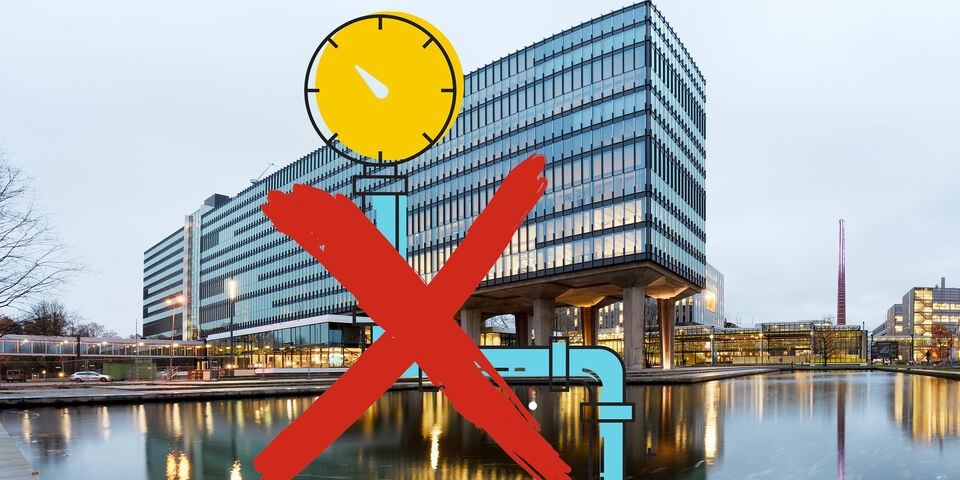Search for cause of water pressure loss in Atlas
An all-out search is underway to find out what causes the low water pressure in Atlas. Last Friday, staff and students noticed that the water pressure dropped in the newly renovated building. On Monday the problem seemed to be solved, but the water pressure dropped again today. Installation company Unica is busy searching for the root of the problem. “It’s hard to say when this will be solved, but they will work through the night to get water to the building,” says Ad van Rooij of Real Estate Management.
At the end of last Friday afternoon, staff noticed that the faucets at Atlas gave less, or sometimes no water at all, especially on the top floors. The problem was solved in the weekend with a so-called bypass, which diverts the water. That seemed to help, but the pressure fell again today. “The problem is slightly bigger than expected,” says facilities manager Johan Lauwers. “Everyone is working extremely hard to solve the problem as quickly as possible, but at this point I couldn’t say when that will be. It seems the problem isn’t located in the technical equipment room, but on the terrain.” Van Rooij confirms that the problem is probably caused by the drinking water pipes between Atlas and the Auditorium.
Van Rooij, account manager at Real Estate Management, says there are no reports of pressure loss in other buildings on campus. “There is some pressure on the lower floors of Atlas, but the pressure boosting system doesn’t have enough flow to supply the upper floors with water.”
Installation company Unica is looking into the possibility of connecting the drinking water installation in Atlas to the sprinkler system, which still has pressure. “We don’t know yet if that is legally possible,” Van Rooij says. This temporary solution would allow time to search for a more permanent one.
Van Rooij and Lauwers understand how difficult the situation is for staff and students in Atlas. Luckily, labs and cleanrooms in Atlas do not use water. “That makes it the least vulnerable building on our campus, but it’s very inconvenient nevertheless.”


Discussion